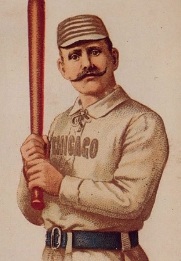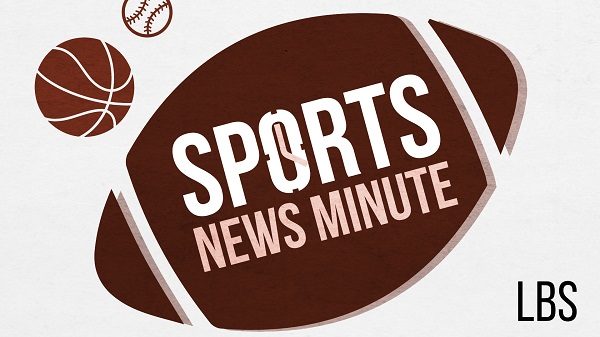An examination of baseball’s old and outdated traditions and terminology
 Have you ever wondered why baseball players simply walk to first base after not having to swing the bat at four bad pitches? When was the last time anyone stopped to consider the grammatical legitimacy of “Take Me Out to the Ball Game”? Who ever conceived of a sport where defensive players can be outwardly indifferent and not get punished for it? Welcome folks to the intricate tapestry that is the game of baseball.
Have you ever wondered why baseball players simply walk to first base after not having to swing the bat at four bad pitches? When was the last time anyone stopped to consider the grammatical legitimacy of “Take Me Out to the Ball Game”? Who ever conceived of a sport where defensive players can be outwardly indifferent and not get punished for it? Welcome folks to the intricate tapestry that is the game of baseball.
What makes baseball a really unique sport is that a lot of what you see nowadays is very similar to what audiences of the nascent era of the game witnessed. Sure, performance enhancing drugs have apparently replaced hot dogs as the supplement of choice, but the game still consists of bases, a long piece of waxed red thread holding two pieces of cowhide together, and the players’ copious consumption of beer before, after, and (as in the case of the Red Sox) during innings.
What also still remains in the sport are various idiosyncrasies that make up the distinctive lexicon of the game generally accepted without much question by its most fanatical of purveyors. (The last sentence might have been written by Alexander Cartwright himself based on its degree of pretentiousness.)
Perhaps this discussion should include a paragraph or five on why the shortstop is numbered as the number six player when counting positions in some kind of Stanley Kubrick-envisioned counter-clockwise fashion, but just know it makes no sense. Moving on. In grade school, an A is the best. In baseball, it means you’re making a crummy living while taking a tour of the Appalachians. AA is usually for recovering alcoholics. In baseball, these former imbibers make up the attendance at this tier of minor league games. AAA? Well, you might call them if your car breaks down near Tucson, but feel free to visit a park showing high minor-league baseball located strategically near where automobiles tend to go kaput.
After a strikeout has been recorded with no one on base (unless your team is really bad at understanding the rules), the infielders throw the ball around the horn. Perhaps this was thought of when the sports world was still trying to find a speedy trade route to get to various spices as well as a shortcut to the Silk Road. We now have Amazon for that, but the mindless practice of slinging the ball around still continues. A foul ball? What did the ball do to deserve such a designation? Debauchery? Depravity? Divisiveness? A foul ball sounds like something you take to a shaman. Well, perhaps it’s less nebulous than calling a ball in play, “fair.” However, baseball’s forefathers do get a point or two of credit for keeping the chicanery to one syllable.
Baseball certainly isn’t a game for those who disdain 19th century appellations, or unhealthy food for that matter. “Bread and butter”? Why not gluten-free loaf and nondairy spread? “Can of corn”? When was the last time you remember a grocer using an apron to catch a can of corn off of a too-tall-to-reach shelf (the origin of the expression)? And, please, don’t get me started on the Cracker Jack shameless self-promotion, which invariably leads to the aforementioned Tin Pan Alley song sung during the middle of the 7th inning known as the “7th inning stretch” (thanks a lot, Teddy Roosevelt). My problem with the song, other than the fact that it is discriminatory toward people with peanut allergies, is the lyric “I don’t care if I never get back.” Excuse me, good sir, but that sounds like a double negative. Oh, and by the way, the lyrics generally sung — in addition to the ad-libbed parts inserted by patrons already three sheets to the wind — comprise only the chorus. Find someone who can actually croon the verse of the song and you have either located a liar or a wayward hobbyist. Either way, avoid them at all costs.
My favorite piece of baseball lexicon is fielder’s indifference. This usually occurs when the game is out-of-hand and instead of bothering to cover a base when a runner takes off, the fielders decide to stay put lest they get out of position should the ball be put in play and the chance for an out be missed. (I can’t believe I wasted 48 words of my quota describing that: Stay tuned next week when I explain the infield fly rule.) Either way, I just never understood it. Even though I know better, whenever I hear about fielder’s indifference, I imagine the infielders all looking at each other and shrugging their shoulders, or as in the case of my family’s Jewish tradition, waving a hand at the scurrying baserunner and exclaiming “Feh!” Perhaps the baseball gods should update the ruling to fielder’s apathy. Or how about “not caring”? (Write ‘NC’ in your scorebooks.) What about the runner? Why should sprinting those ninety feet be rendered meaningless?
Walk-off plays are always good fodder. Whenever a win comes for a home team in its final at-bat, it is said to be a walk-off (insert method of win here). Walk-off home run? Check. Walk-off walk? Yep, though that probably was not what C. Everett Koop had in mind when he told Americans to play sports to become more active. But it gets even worse. Walk-off balk. It rhymes, but at what cost? One that was mentioned last year was a walk-off catcher’s interference. By the time, I got my head around that one, I passed out and woke up in a ditch somewhere. True story. I’m still waiting for a walk-off rainout. Or, perhaps, a walk-off monetary discrepancy. (Baseball players do have arguments over tipping, even though it usually regards pitches.)
To fit all of baseball’s idioms into this very humble Spartan space I call a weekly column would be considered madness, so that is why I will try my best. Punch and Judy hitter? Not only is the inference insulting but you better be able to back up that characterization when you compare one’s baseball acumen to that of a sassy judge with a thick New York drawl. Whoever came up with the name for the bat used to hit fly balls and grounders in practice should be inducted into Cooperstown for the word “fungo.” I can just envision the invention of this bat, followed by a long-winded discussion of what to call it. A guy at the back with an eye-patch, perhaps, reeking of scotch nearly as old as he, proclaims “let’s call it a fungo bat” and, of course, everyone agreeing soon after. Presumably you’ve seen a guy get on his horse to catch a fly ball, unless you are a Pirates fan, and that horse has found its way to the glue factory. Getting good wood on a pitch sounds like cause for a Wham! reunion, or at least something better left for a rubber game. Presumably you’ve gotten off the schneid by then, which makes about as much sense as my Yiddish.
If you’re still confused, I’ve done my job, but, anyway, try to avoid the Golden Sombrero, the goose egg, and the high cheese (especially Roquefort). Just know you’ve got more than one way to say things in baseball. A shallow fly ball can easily be a blooper, a Texas Leaguer, a flare, a duck snort, a dying quail, or anything else that would make an ornithologist jump for joy.
Well, with all this pointless information at your disposal, you should be thankful you’re not on a big league diamond right now. What if you spilled coffee all over those just-completed tax forms? Imagine if they flashed error next to your name in front of 50,000 people. That wouldn’t be very nice. Fortunately, in my line of work they don’t metaphorically flog you on the scoreboard every time you make a mistake. For that, people use Twitter.







